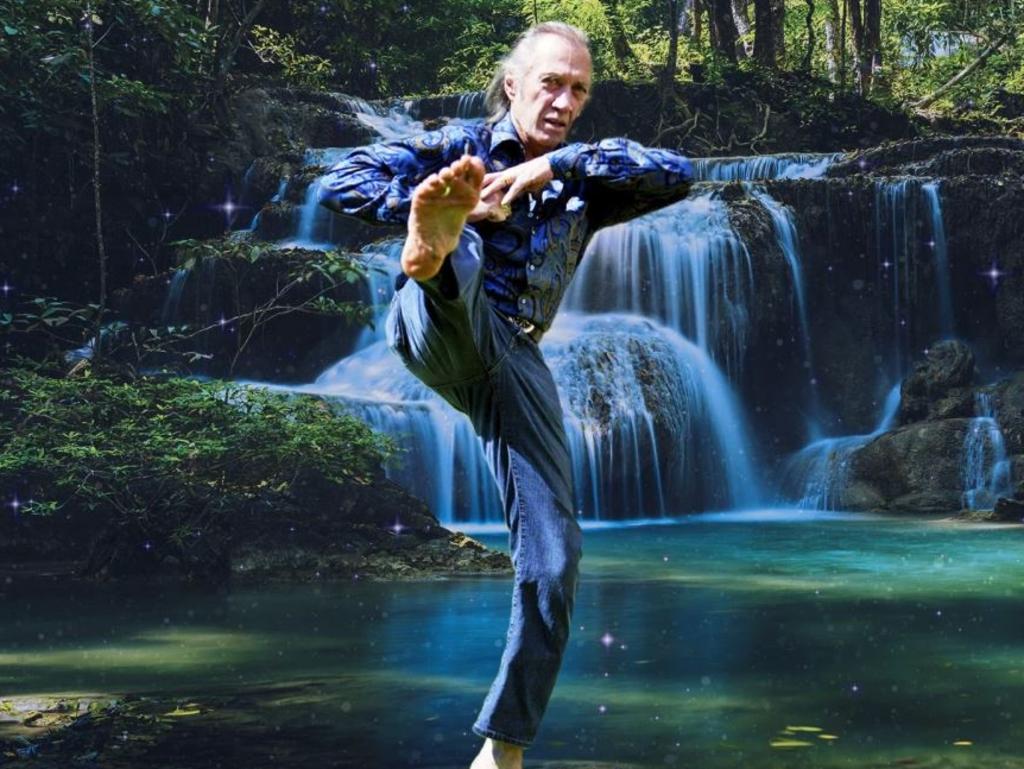A dear friend’s wake reminds me: life can be a merry dance
Going to a wake is like a maypole dance, where all those who attend are ribbons tied to the centre. Which makes you think about death, age and the will to live.
Wakes can be no place for the faint-hearted.
Not because they are invariably accompanied by deep sadness, regret, remorse, sorrow, loss and chilling there-but-for-the-grace-of-whoever-go-I moments.
No. They can unsettle you to the core because they bring so many diverse people together, drawing into one room these multitudes of ribbons attached to the centre of the maypole (being the deceased).
You may know several of the ribbons. But might not have seen them for a while.
And therein lies the source of the jaw-drop.
At a recent memorial for a dear, beautiful and hugely well-loved friend, our lost maypole, hundreds crammed into a Sydney oceanside golf course function room (probably last refurbished when Malcolm Fraser was PM) to pay their final respects.
Our friend adored irony. And there was plenty on this afternoon, not the least being the location. He would have no sooner picked up a 3-wood than danced naked on the steps of the Sydney Opera House. In the middle of the day. To Rick Astley’s Never Gonna Give You Up (Kontrollverlust punk version). With a plastic pansy protruding from his buttocks.
Many of the ribbons who gathered, however, hadn’t seen each other in years, some in decades.
So it was a case of people coming up to you and vice versa with that vague, quizzical, imploring and desperate look that said: I know I know you, there is a person in there that I recognise, that I may have worked with daily, but could you help me out here with your name?

One friend who attended later sent me some pictures of the event with the message: “We all look like a long banquet table covered in cracked and deflated souffles.” We being the souffles, not the banquet table. (As opposed to suggesting we all had faces like dropped pies, for example, which had entirely different connotations altogether.)
My late mate had it right – ageing sucks.
Later, ruminating on my own cracked souffle, my eggs well and truly overbeaten, any soft peaks flattened with the years, and having lived, on occasion, with the oven set too high, I wondered why there was such a monstrous gulf between the age we perceive ourselves to be and our actual age.
Fortunately, in the worlds of medicine and psychology, there’s barely a question, no matter how innocuous, that hasn’t already been the subject of an in-depth scientific study or a lengthy exegesis.
Ageing is a perennial hot topic, particularly the question of self-perception triggered by the souffle comparison. The age we think we feel is called subjective ageing, as opposed to the reality reflected in the calendar.
Now on some days our subjective age might be years in advance of our actual vintage. Or it might be a lot younger.
How many times have you looked at a picture of yourself and immediately reacted “that cannot possibly be me”? How many times has my wife caught me suddenly in the corner of her eye and flinched – “how did the world’s oldest burglar get into the house?” – before realising it was just me and my cracked souffle going about my business?
In short, there’s a point you reach where you ask: How did I turn into that?
Turns out a lot of this self-delusion can be traced back to quality sleep. Get a good sleep and you feel younger. Have a rubbish sleep and you feel older. Simple.
But when you look in the mirror in the morning do you see the fluffy dessert or the sunken disaster?

A study published last year in Psychology and Ageing – How Old Do I Look? Ageing Appearance and Experiences of Ageing Among US Adults Aged 50-80 – came to a conclusion that might seem ridiculously obvious.
Almost 60 per cent of US adults in the study age bracket believed they looked younger than other people their age.
As the study pointed out: “Younger biases exemplify dominant contemporary social values rewarding those embodying youthfulness and not appearing stereotypically old. Report of looking younger than peers may be an adaptive strategy for creating cognitive distance from those deemed to be old or from the negative stereotypes, prejudices and discrimination associated with old age …”
In other words, being delusional about your age is not necessarily a bad thing. Thinking you’re younger may contribute to you living longer. It’s all the positivity, you see, a brighter approach, not buying into the “I’m old” stereotype.
You may not be able to uncrack an egg. But if these studies are anything to go by, it seems you can de-crack a souffle if you think, at 70, you’re as fit and fine-tuned as you were when you were 20. (And don’t ever look in a mirror again.)
In the end, who cares what anyone thinks? With a few taps on a keyboard these days you can find in a twinkle any number of scientific studies to support your beliefs.
If you’re pro-souffle restoration, you can go to “Longevity increased by positive self-perception of ageing” by Levi, Slade, Kunkel and Kasl from Yale and Miami universities in the United States and published in 2002.
This is from the study abstract: “This research found that older individuals with more positive self-perceptions of ageing, measured up to 23 years earlier, lived 7.5 years longer than those with less positive self-perceptions of ageing. This advantage remained after age, gender, socio-economic status, loneliness and functional health were included as co-variates. It was also found that this effect is partially mediated by will to live.”
The will to live. Another rabbit hole.
But there’s a study on that too. See Assessing the Will to Live (WTL): A Scoping Review out of Switzerland from 2020, and it’s cheery stuff: “WTL is a concept different from personal longevity motivation, which assesses preferred life expectancy and explores how people project themselves into the future. Although we can imagine associations between these two concepts, WTL is distinct in its focus on the present: Does the person, at the present moment, have an existential motivation to live? Moreover, WTL is not simply the opposite of the wish to die, a much-studied concept to date. The wish to die and WTL can coexist in the same person.”
All I can say is – WTL?
Near the end of our beloved friend’s wake was a slide show of pictures that moved chronologically through his life. It was emotional, sometimes breathtaking, to see images of people and apartments and moments that had also been a part of many of our lives too.
It was like suddenly being thrust through a time tunnel and shot out the end along with all the other friends and acquaintances of a full life.
The thing that made it all remotely bearable was that this room full of people had gone on this journey together.
And we were here again, on the edge of a golf course by the sea, to honour our friend and this strange communal adventure we call life.
Forget the imperfect desserts and the endless dissertations. For a moment, each and every person in that room on that day was beautiful.





To join the conversation, please log in. Don't have an account? Register
Join the conversation, you are commenting as Logout